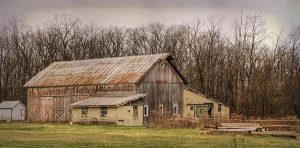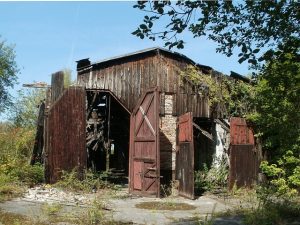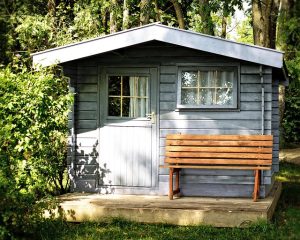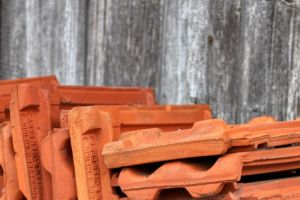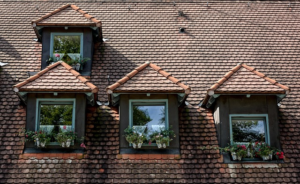In Albury, durable farm sheds constructed with galvanized steel or color steel cladding are pivotal for agricultural resilience, designed to withstand the region's variable weather conditions, including intense solar radiation, heavy rainf…….

In Albury, durable farm sheds constructed with galvanized steel or color steel cladding are pivotal for agricultural resilience, designed to withstand the region's variable weather conditions, including intense solar radiation, heavy rainfall, and powerful winds. These structures feature solid concrete foundations, high-tensile steel frames, hurricane ties, and bracing, all aimed at longevity and structural integrity. They are oriented and designed to minimize heat absorption, protecting crops and machinery from extreme temperatures and reducing the need for heating or cooling systems. The sheds' sustainable design also contributes to combating the heat island effect and minimizing environmental impact by eliminating frequent replacements. Enhanced with smart ventilation and insulation systems, these farm sheds efficiently regulate internal temperatures, safeguarding produce and accommodating modern agricultural technology. This innovative approach to farm shed design in Albury underscores a commitment to sustainable farming practices, energy efficiency, and a lower carbon footprint, positioning the region's farmers at the forefront of efficient and environmentally conscious agriculture. Farm Sheds are thus not just storage solutions but integral to optimizing modern farming efficiencies in Albury, reflecting the community's adaptability to environmental changes and market dynamics.
In Albury’s dynamic agricultural landscape, the integration of robust and resilient farm sheds has become a cornerstone for safeguarding crop yield and livestock well-being. This article delves into the multifaceted benefits of weather-resistant farm sheds, emphasizing their role in withstanding Albury’s variable climatic conditions. Explore the innovative materials and construction techniques that contribute to the durability and longevity of these structures. Further, uncover how these farm sheds not only protect against harsh weather but also play a pivotal role in advancing sustainable energy practices within the region. Lastly, understand how strategic planning of farm sheds can optimize storage and shelter for seamless farming operations, thereby enhancing productivity and profitability.
- Maximizing Crop Yield and Livestock Protection: The Role of Weather-Resistant Farm Sheds in Albury
- Designing Durability: Materials and Construction Techniques for Resilient Farm Sheds in Albury's Climate
- Energy Efficiency in Agriculture: How Weather-Resistant Farm Sheds Contribute to Sustainable Practices in Albury
- Optimizing Storage and Shelter: Strategic Planning of Weather-Resistant Farm Sheds for Enhanced Farming Operations in Albury
Maximizing Crop Yield and Livestock Protection: The Role of Weather-Resistant Farm Sheds in Albury
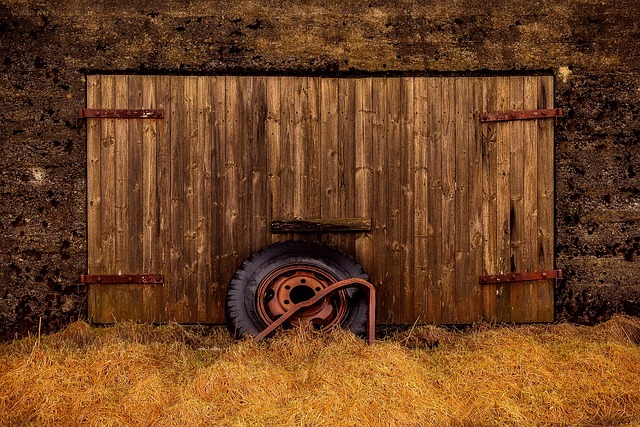
Designing Durability: Materials and Construction Techniques for Resilient Farm Sheds in Albury's Climate

In Albury, a region characterized by its diverse and often unpredictable weather patterns, designing durable farm sheds is paramount for agricultural resilience. The materials selected for constructing these sheds must withstand the full gamut of environmental challenges, from intense solar radiation to heavy rainfall and high-velocity winds. Typically, galvanized steel or color steel cladding is employed due to its longevity and low maintenance requirements. These materials are engineered to resist corrosion, ensuring the sheds remain structurally sound for decades. Additionally, strategic planning in terms of orientation and design can mitigate heat absorption, thereby providing both the farm’s machinery and stored produce with optimal protection.
Furthermore, robust construction techniques are essential to reinforce the sheds against Albury’s weather extremes. A solid foundation, often concrete, is a non-negotiable aspect of resilient shed design, as it provides stability that can endure even in the most testing conditions. The frame, typically made from high-tensile steel, is crucial for maintaining structural integrity. Reinforcements such as hurricane ties and bracing are also incorporated to ensure the sheds can withstand high winds without sustaining significant damage. By integrating these materials and construction techniques, farm sheds in Albury not only protect agricultural assets but also serve as testaments to the ingenuity of design for sustainable rural practices.
Energy Efficiency in Agriculture: How Weather-Resistant Farm Sheds Contribute to Sustainable Practices in Albury
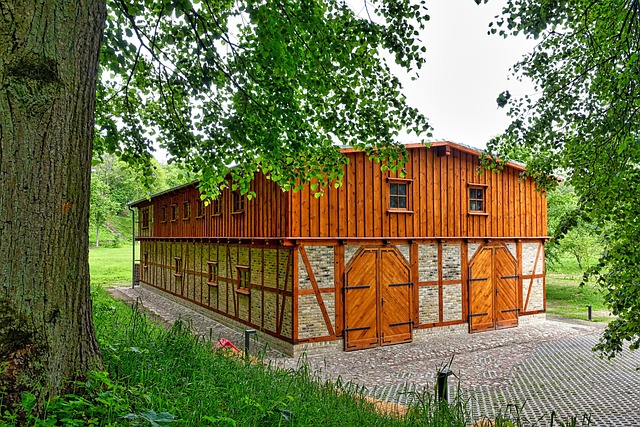
In Albury, the integration of weather-resistant farm sheds plays a pivotal role in enhancing energy efficiency within agricultural practices. These structures are meticulously designed to withstand the harsh elements that frequently challenge the region, from scorching summers to cold winters. By providing a stable and consistent environment for stored crops and equipment, these sheds reduce the need for supplementary heating or cooling, thereby minimizing energy consumption. This not only contributes to cost savings for farmers but also aligns with broader sustainability goals. The reflective materials used in the construction of these sheds can mitigate the heat island effect, further promoting energy efficiency. Moreover, the durability and longevity of weather-resistant farm sheds ensure that they stand up to the test of time, reducing the frequency of replacements and the associated environmental impact. Farmers in Albury are increasingly adopting these sustainable solutions, recognizing the importance of energy-efficient infrastructure in maintaining a competitive edge while upholding environmental stewardship.
The incorporation of advanced design elements in weather-resistant farm sheds, such as optimized ventilation and insulation, ensures that they maintain an optimal internal climate regardless of external conditions. This not only protects the agricultural produce from weather damage but also supports the efficient operation of machinery and technology used within the sheds, which are often crucial for precision agriculture and automation. The adoption of these energy-efficient farm structures is a testament to Albury’s commitment to sustainable farming practices, showcasing how innovative infrastructure can significantly reduce the carbon footprint associated with agricultural activities. As such, weather-resistant farm sheds not only serve as protective shelters but also as strategic assets in the pursuit of energy efficiency and sustainability within Albury’s agricultural sector.
Optimizing Storage and Shelter: Strategic Planning of Weather-Resistant Farm Sheds for Enhanced Farming Operations in Albury
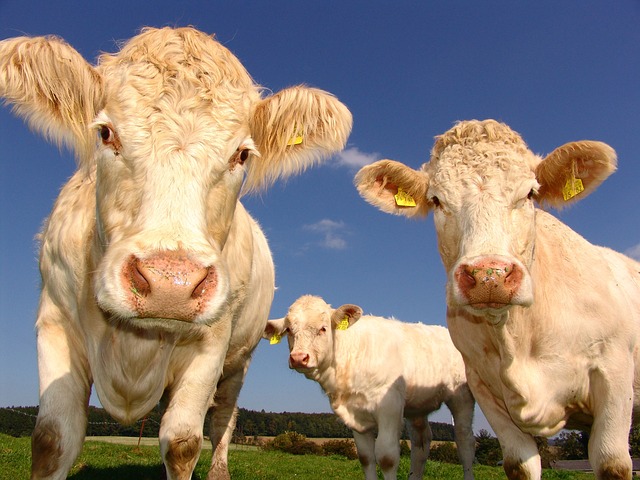
In Albury’s agricultural landscape, the strategic placement and design of weather-resistant farm sheds play a pivotal role in optimizing storage and shelter for enhanced farming operations. These structures are not mere storage facilities; they are integral components of modern farming practices, providing protection against the capricious weather patterns characteristic of the region. The durability of farm sheds is paramount, with materials such as galvanized steel or treated timber ensuring longevity and resistance to environmental stressors like strong winds, heavy rains, and harsh sun. By carefully considering the orientation of these sheds relative to prevailing winds and sunlight exposure, farmers in Albury can maximize both energy efficiency and the preservation of crops and equipment.
The planning of weather-resistant farm sheds also involves a thoughtful approach to their size and layout, tailored to the specific needs of the operation. In Albury, where diverse agricultural activities thrive, the sheds are often designed with adaptability in mind, allowing for segmentation into different zones for various purposes such as machinery storage, livestock shelter, and crop drying. This zoning not only enhances efficiency but also facilitates better management of resources and space. With a focus on sustainability and functionality, these farm sheds are a testament to the innovative spirit of Albury’s farming community, embodying a commitment to resilience and adaptability in the face of an ever-changing climate and market demands.
In Albury, the adoption of weather-resistant farm sheds has emerged as a pivotal strategy for farmers seeking to safeguard their crops and livestock while optimizing storage and shelter. These structures are meticulously designed with durable materials and robust construction techniques tailored to withstand the region’s variable climate, ensuring year-round protection of agricultural assets. Furthermore, the energy efficiency characteristics of these sheds contribute significantly to sustainable farming practices, reducing the environmental footprint associated with traditional farming methods. The strategic planning and implementation of weather-resistant farm sheds in Albury not only enhance operational efficiency but also play a crucial role in maximizing crop yield and maintaining animal health. As a result, these structures are proving to be indispensable for modern farmers looking to adapt to the challenges posed by climate change and market demands. Investing in weather-resistant farm sheds is not just a smart choice for Albury’s agricultural sector but a step towards a more sustainable future.
